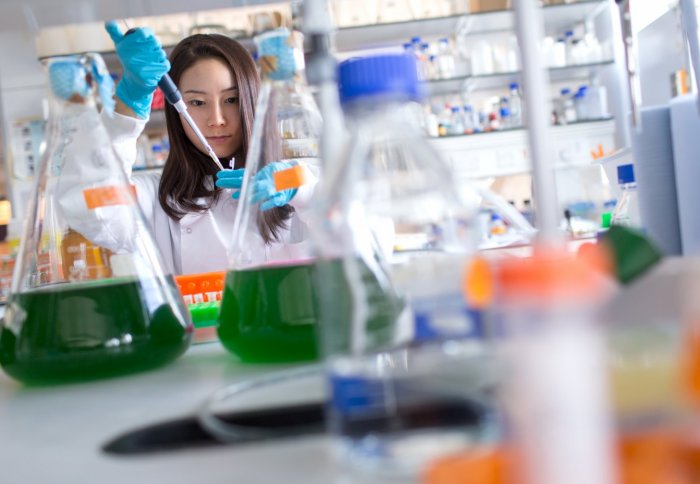Vince Cable announces investment for postgraduate training at Imperial

Imperial has received a £8m funding boost for a Doctoral Training Partnership to support future bio scientists.
Over the next five years the College will receive £8million to host 16 students a year in collaborative training programmes with Royal Holloway University of London (RHUL).
These doctoral students will help tackle the grand challenges of our time, including environmental degradation, the ageing population and fossil fuel dependency. Their work will stimulate scientific discoveries, drive economic growth and create societal benefit
– Professor James Stirling
Provost of Imperial College London
The funding is provided by the Biotechnology & Biological Sciences Research Council (BBSRC) and is part of a wider £125million investment aiming to upskill 1250 bioscience students so that they can lead the next industrial revolution and tackle pressing issues in agriculture, biotechnology and healthcare.
The new program builds on a prior BBSRC doctoral training partnership previously awarded to Imperial and RHUL.
Announcing the new funding, Secretary of State for Business, Innovation and Skills Vince Cable said: “The UK punches far beyond its weight in science and innovation globally, which is a credit to our talented scientists and first-class universities. This new funding will safeguard Britain’s status as a world leader in life sciences and agricultural technology.”
This new funding aims to bring together diverse areas of expertise to train scientists with the skills, knowledge and confidence to tackle evolving issues and future challenges such as:
- increasing food production to meet demands of a growing population whilst also reducing waste and environmental stress;
- using industrial biotechnology to create renewable energy and materials using plants and reduce dependency on fossil fuels; and,
- improving the health of our ageing population to reduce pressure on healthcare systems.
Welcoming the announcement, Professor James Stirling CBE FRS, Provost of Imperial College London, said: “The government’s continued support for DTPs is enabling the next generation of scientists to receive the best possible start to their careers.
“These doctoral students will help tackle the grand challenges of our time, including environmental degradation, the ageing population and fossil fuel dependency. Their work will stimulate scientific discoveries, drive economic growth and create societal benefit.
“The BBSRC’s further investment in DTPs at the College is testament to Imperial’s world-class offering in education, research and its application, and recognition of our experience of running innovative doctoral training programmes. We look forward to taking full advantage of this exciting opportunity.”
Postgraduate students will be trained in areas including agriculture, food security, industrial biotechnology, bioenergy and health.
Dr Celia Caulcott, BBSRC Executive Director, Innovation and Skills: “Bioscience is having a massive impact on many aspects of our lives. BBSRC is paving the way for an explosion in new economic sectors and bioscience that will change the way we live our lives in the twenty-first century. To achieve this we need to maintain our leading position in global bioscience by ensuring that the next generation of scientists have the best training and skills. This next generation of scientists are our future and we must invest in them now.”
Article supporters
Article text (excluding photos or graphics) © Imperial College London.
Photos and graphics subject to third party copyright used with permission or © Imperial College London.
Reporter
Press Office
Communications and Public Affairs
- Email: press.office@imperial.ac.uk
